For most households, between 1 and 3 cats is enough with 5 cats being the maximum recommended number.
More than 5 cats in one home is usually too many due to the time required to care for each cat, the financial commitment, the resource requirements and the emotional wellbeing of the cats.
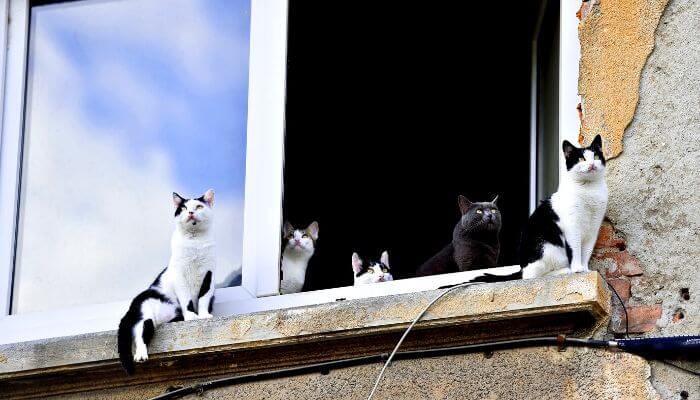
Some cats prefer to live on their own and, for them, having other cats in the household can cause stress and behavioural issues – so in this case, one cat is perfect and two cats is too many.
However, other cats enjoy living in multi-cat households and “too many” will then depend on a number of factors based on the individual cats, the environment, and the available resources.
This is why the only true and accurate way to answer this question is on a case-by-case basis.
Contents
What’s The Maximum Number Of Cats One Person Can Reasonably Have?
In most cases, the maximum number of cats one person can sufficiently care for is 2-3 cats.
However, it depends on the situation; if you have the resources and time to dedicate to the cats AND the cats in question don’t mind living with each other then a few more shouldn’t be an issue.
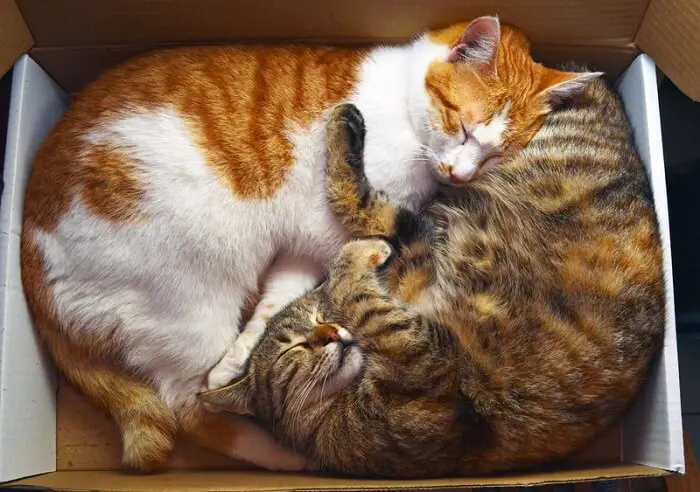
Cats are solitary hunters and it is not unusual for them to be aggressive or territorial when living close to other cats.
Some cats don’t respond well to new additions to the family and introducing new cats can be a long process.
In contrast to this, many cats are happy to be around others which is why the individual personality of the cats is such an important and influential factor.
While there is no magic number, remember that the more cats you have the harder it is to give each individual the time and attention they need.
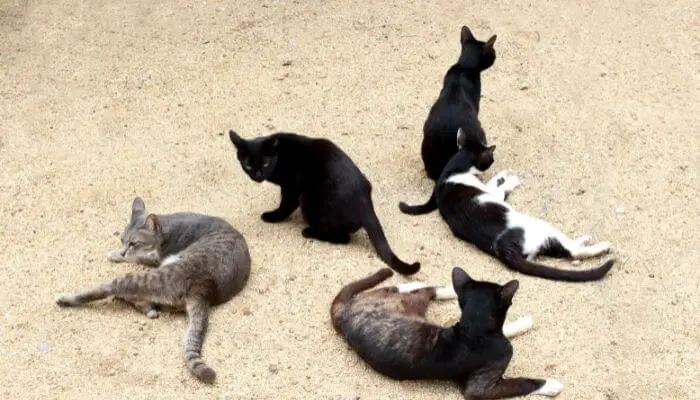
When there are too many cats in one household it is harder to form secure emotional bonds with each of them and it becomes difficult to properly monitor each cat’s health and wellbeing.
What The Experts Say
According to experts, 5 cats is the maximum an individual can have before it becomes difficult to give each cat the time and care they need.
Veterinarian Dr Justine Lee says, “I usually recommend no more than four to five cats in total”.
“I usually recommend no more than four to five cats in total.”
Dr Justine Lee, Veterinarian
4-5 seems to be the answer from most experts but in a 2014 BBC documentary one expert suggests urban households limit themselves to one cat due to stress, competition for space and high population numbers in city environments.
Animal Hoarding
Since 2013, hoarding has been classified as a mental disorder, and animal hoarding is a subtype of this.
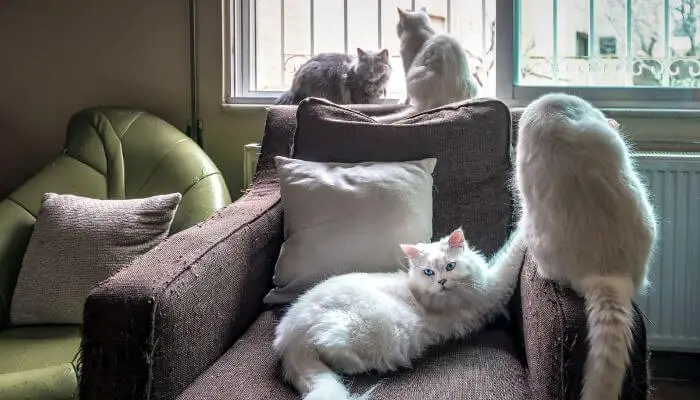
Animal hoarding is the accumulation of a large number of animals with a failure to provide minimum care standards or respond to the deteriorating conditions of the animals or the environment around them.
Elisa Arrienti Ferreira studied animal hoarding as part of her thesis and found that many animal hoarders began hoarding in response to a significant negative life event.
Vanessa Whitfield, A senior vet at the RSPCA Greater Manchester Hospital said, “animal hoarding is one of the biggest current challenges faced by the RSPCA”.
“Animal hoarding is one of the biggest current challenges faced by the RSPCA”
Vanessa Whitfield, senior vet at RSPCA Greater Manchester
In some countries and states, there are limits on how many animals can be kept in one home.
These caps aim to reduce animal hoarding and keep the peace between neighbours as noise, odour, and property damage complaints are common when it comes to pets.
For example, in Los Angeles, it is illegal to have more than 3 cats in a household without a kennel permit.
Similarly, Pittsburgh has a five pet limit, Omaha has a five cat limit and a three-dog limit and Dallas has a limit depending on the size of the home and surrounding property.
Cat Hoarding Statistics
- According to a BBC report, the average cat hoarder has between 15 – 20 cats. The worst-case in the report had 40 – 50 cats, far more extreme cases of over 300 cats in a small flat have been reported.
- Cats are the most likely animal to be hoarded, followed by dogs.
- 73% of animal hoarders are female.
- 1.2 million people in the USA suffer from compulsive hoarding (not animal-specific).
- According to the Animal Legal Defense Fund, it is likely that 250,000 animals per year are kept by hoarders.
How Much Cat Food, Litter Trays & More Can You Afford?
Before you bring lots of cats into your home consider the resources needed to take care of them all.
Even if you have plenty of space this does not mean the cats will have everything they need to thrive.
Resources such as cat food, food dishes, litter trays, toys, and beds are essential.
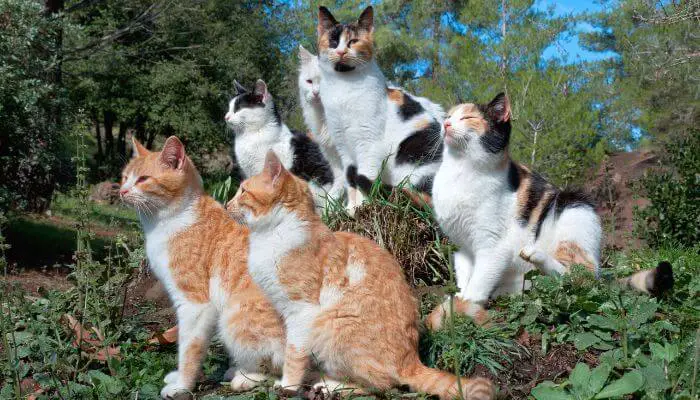
There needs to be at least one litter box per cat plus one more.
Each of these litter boxes needs to be cleaned daily and this will equate to a large amount of cat litter being used each day too.
Each cat needs access to food and fresh water, a bed/ hide that is their own, access to scratching posts/ cat trees/ perches/ toys etc.
The largest ongoing costs are going to be cat litter and cat food as multi-cat households will go through a large amount of both each week.
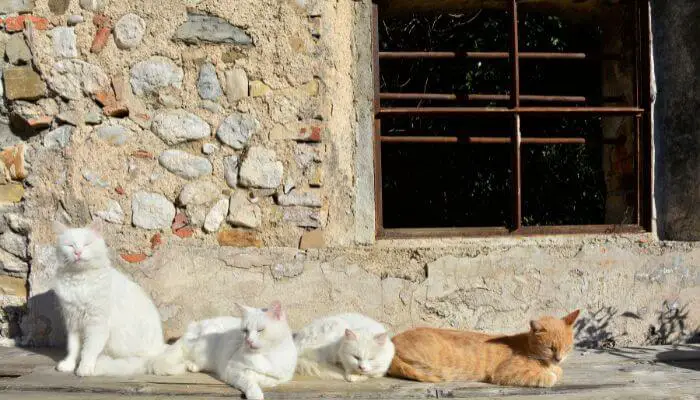
There are also health care and vet bill costs to keep in mind too.
Vet bills are often high so it’s a good idea to get pet insurance to help with emergency situations.
Cat insurance is also another significant expense to add to the ongoing cost of keeping multiple cats.
Pros Of Lots Of Cats:
1. Companionship
Your cats will keep each other company which will help prevent them from being bored or understimulated.
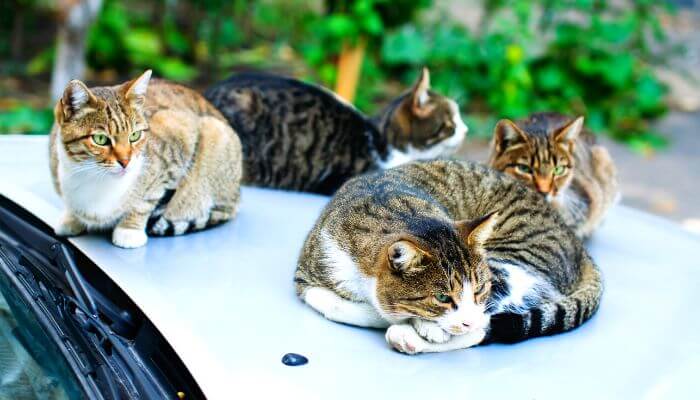
Cats that get along will play and socialise together which can help reduce destructive behaviour and increase their quality of life.
It is also companionship for you which is a big motivation for many people to welcome pets into their home.
2. Social Interaction
Having multiple cats allows them to have plenty of social interaction, opportunities for play, and physical exercise.
On top of this, cats in the same home will also help groom each other so those hard-to-reach places won’t be a problem anymore.
3. Reduced Loneliness
Having more than one cat will reduce the loneliness and boredom a solitary cat may feel when you’re not at home.
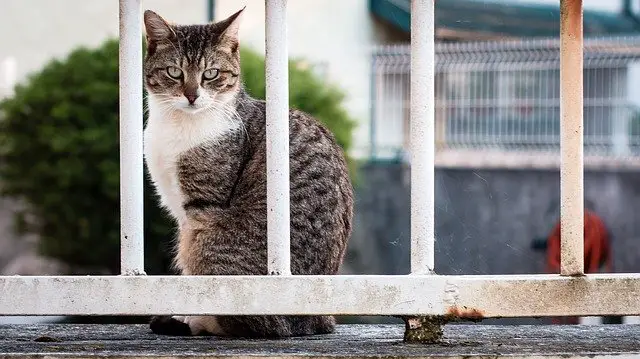
If you have a scared or anxious cat, having another cat around that they feel comfortable with can help to increase confidence and help them settle in.
4. General Enjoyment
For many people, there’s a simple reason for having more cats. More cats mean more play, more snuggles, and more love.
It’s enjoyable to have a couple of cats at home; you can get to know them individually, watch their antics as they interact, and spend more time giving them attention.
Not to mention the fact you’re giving more cats a home so that’s a few less cats in the rehoming centre.
Cons Of Lots Of Cats:
1. Behavioural Problems
As mentioned earlier, the personality of the cats play a huge role and the more cats in the household the higher the risk of behavioural problems and the cats no longer tolerating each other.
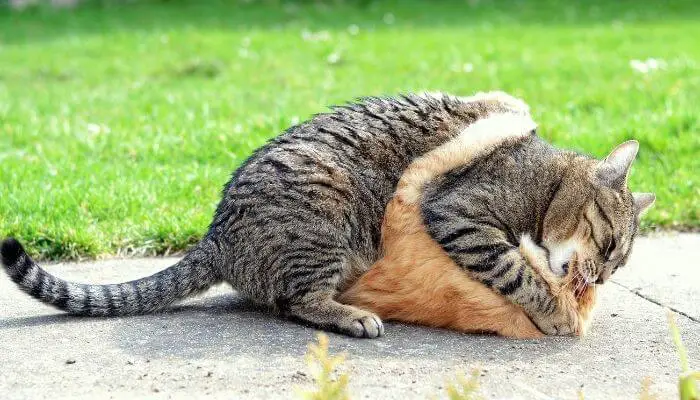
Socialising multiple cats is a time-consuming challenge and the potential for overcrowding is high.
2. Inappropriate Urination
Having more cats in the home increases the risk of inappropriate urination as territory and hygiene may become a problem.
In addition to this, the number of cats and the high number of litter boxes is going to result in an increase in odour and general uncleanliness.
3. High Costs
The food and cat litter costs alone will be high when caring for lots of cats, and that’s before you begin to factor in the vet bills too.
4. Difficulty Keeping Track
Every day the litter trays will need to be cleaned and each cat will need time with their human family to interact, play, cuddle etc.
This individual attention is extremely important and also gives owners a chance to check each cat is in good health.
This one on one time becomes more difficult with lots of cats and this is where issues can start to arise.
5. Local Laws
Before you welcome lots of cats into your home make sure you are aware of local laws.
Some limit the number of animals that can be kept in one home making it illegal to own too many cats.
If you have more cats than the local limit then you may find yourself in a bad situation both with your neighbours and the law.
As an Amazon Associate I may earn a small fee from qualifying purchases at no extra cost to you. This helps us run the site, so thanks for your support!

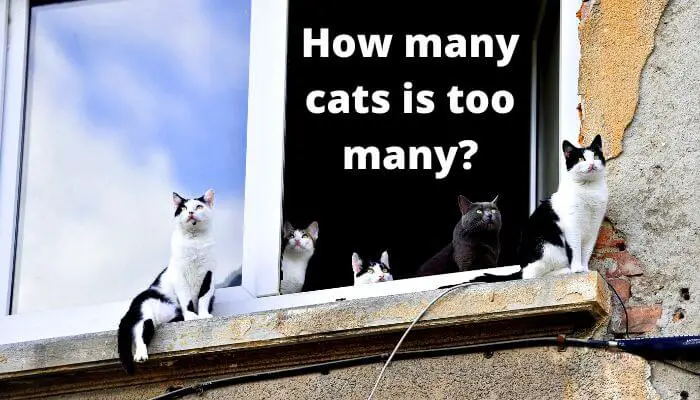


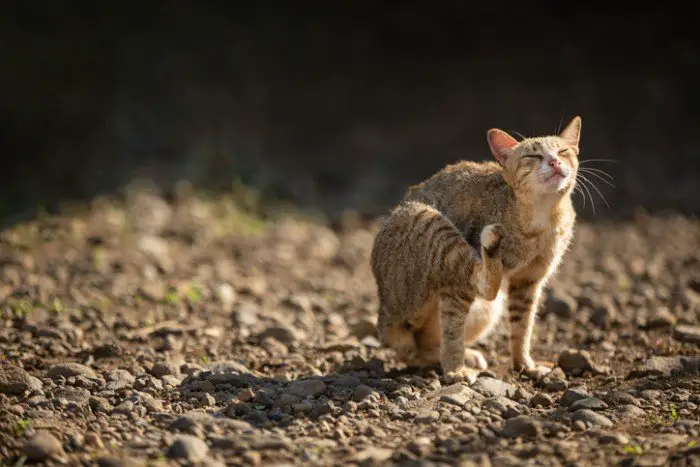
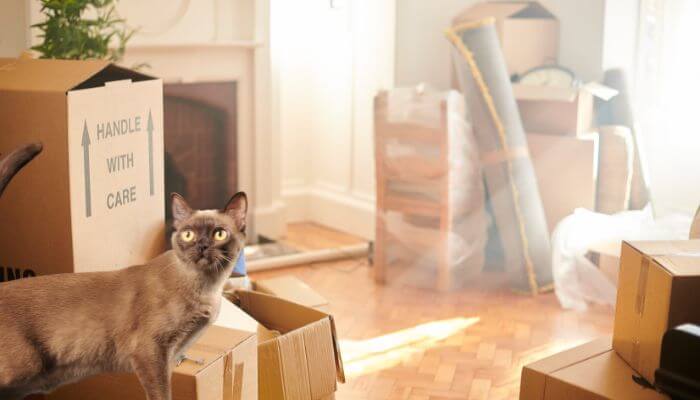
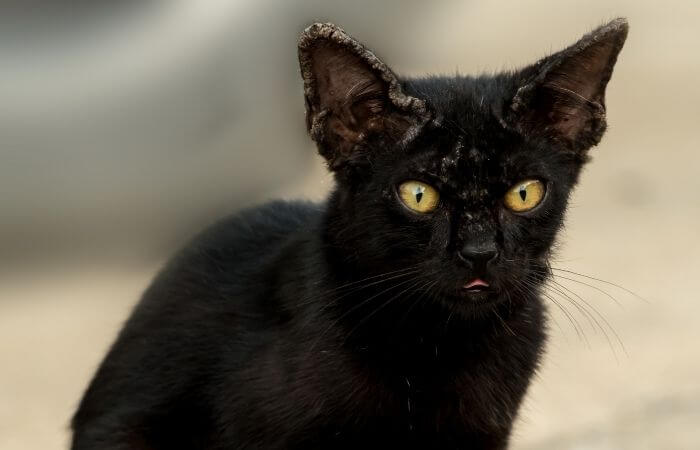

Leave a Comment